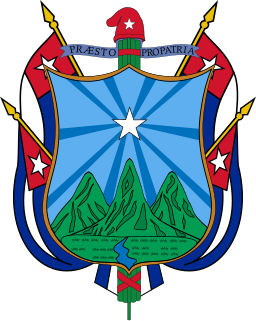 W
WOriente was the easternmost province of Cuba until 1976. The term "Oriente" is still used to refer to the eastern part of the country, which currently is divided into five different provinces. Fidel and Raúl Castro were born in a small town in this province (Birán).
 W
WPedro de Alcántara Téllez-Girón y Alfonso-Pimentel (1786–1851), better known as the Prince of Anglona, was a Spanish military officer during the Peninsular War Director of the Prado Museum between 1820 and 1823 and Captain General of Cuba.
 W
WJuan de Amézqueta, was a captain in the Puerto Rican Militia who defended Puerto Rico from an invasion by the Dutch in 1625. He fought and wounded Captain Balduino Enrico who was ordered by the Dutch Government to capture Puerto Rico.
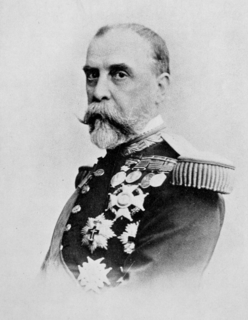 W
WRamón Blanco Erenas Riera y Polo, 1st Marquess of Peña Plata was a Spanish brigadier and colonial administrator. Born in San Sebastián, he was sent to the Caribbean in 1858 and governed Cuba and Santo Domingo. In 1861, he returned to Spain but was then sent to the Philippines (1866–1871).
 W
WIsabel de Bobadilla, or Inés de Bobadilla was the first female governor of Cuba from 1539–1543.
 W
WAntonio María de Bucareli y Ursúa was a Spanish military officer, governor of Cuba, and Viceroy of New Spain (1771–1779) during the time of Spanish colonization of California. He was Knight of Justice of the Order of Malta.
 W
WFrancisco Cajigal de la Vega was a Spanish military officer, governor of Cuba from 1747 to 1760, and interim viceroy of New Spain, from April 28, 1760 to October 5, 1760, succeeded by Viceroy Joaquín de Montserrat, marqués de Cruillas.
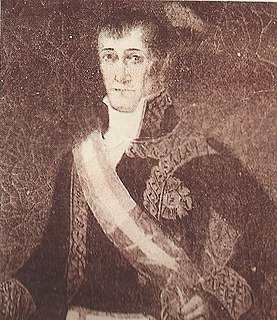 W
WJuan Manuel Cajigal y Niño was a Spanish Captain General, born in Cádiz, in 1754.
 W
WLuis de las Casas y Aragorri was Spanish Governor of Cuba and the Commander in Chief of the Province of Louisiana and the Floridas.
 W
WJosé Manuel de Ezpeleta y Galdeano, 1st Count of Ezpeleta de Beire (1739–1823) was a Spanish military officer and politician, governor of Cuba from 1785 to 1789, and viceroy of New Granada from 1789 to 1797.
 W
WJuan Francisco de Güemes y Horcasitas was a Spanish general, governor of Havana, captain general of Cuba, and viceroy of New Spain.
 W
WJosé Gutiérrez de la Concha e Irigoyen, 1st Marquess of Havana, 1st Viscount of Cuba, Grandee of Spain was a Spanish noble, general and politician, who served three times as Captain General of Cuba and once as the Prime Minister of Spain.
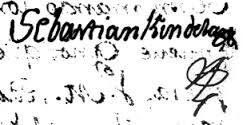 W
WSebastian Kindelán y O’Regan, also called Sebastián de Kindelán y Oregón, was a colonel in the Spanish Army who served as governor of East Florida and of Santo Domingo during the Second Spanish period (1818–1821), as well as provisional governor of Cuba (1822–1823).
 W
WFrancisco de Lersundi y Hormaechea was a Spanish noble and politician who served as Prime Minister of Spain in 1853 and held other important offices such as Captain General of Cuba from 1866 to 1869.
 W
WArsenio Martínez-Campos y Antón, born Martínez y Campos, was a Spanish officer who rose against the First Spanish Republic in a military revolution in 1874 and restored Spain's Bourbon dynasty. Later, he became Captain-General of Cuba. The soldier and politician took part in wars in Africa, Mexico and Cuba and in the Third Carlist War.
 W
WPedro Menéndez de Avilés was a Spanish admiral and explorer from the region of Asturias, Spain, who is remembered for planning the first regular trans-oceanic convoys and for founding St. Augustine, Florida, in 1565. This was the first successful Spanish settlement in La Florida and the most significant city in the region for nearly three centuries. St. Augustine is the oldest continuously-inhabited, European-established settlement in the continental United States. Menéndez de Avilés was also the first governor of Florida (1565–74).
 W
WLeopoldo O'Donnell y Jorris, 1st Duke of Tetuán, GE, was a Spanish general and statesman who was Prime Minister of Spain on several occasions.
 W
WCamilo García de Polavieja y del Castillo-Negrete, 1st Marquis of Polavieja (1838–1914) was a Spanish general born in Madrid on July 13, 1838, in a family of merchants. He was an able commander, but considered as brutal as Valeriano Weyler of Cuba.
 W
WDon Federico de Roncali y Ceruti, 1st Count of Alcoy was a Spanish noble, politician and military who served as Prime Minister of Spain between 1852 and 1853. He held other important offices such as Captain General of Cuba and Minister of State.
 W
WJuan José Ruiz de Apodaca y Eliza, 1st Count of Venadito, OIC, OSH, KOC was a Spanish naval officer and viceroy of New Spain from 20 September 1816 to 5 July 1821, during Mexico's War of Independence.
 W
WFrancisco Serrano Domínguez Cuenca y Pérez de Vargas, 1st Duke of la Torre, Grandee of Spain, Count of San Antonio was a Spanish marshal and statesman. He was Prime Minister of Spain in 1868–69 and regent in 1869–70.
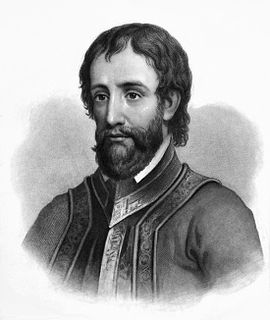 W
WHernando de Soto was a Spanish explorer and conquistador who was involved in expeditions in Nicaragua and the Yucatan Peninsula, and played an important role in Pizarro's conquest of the Inca Empire in Peru, but is best known for leading the first European expedition deep into the territory of the modern-day United States. He is the first European documented as having crossed the Mississippi River.
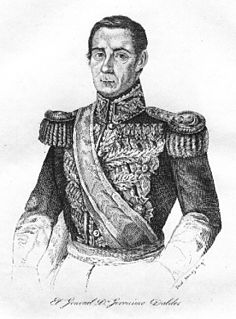 W
WJerónimo Valdés (1784–1855) was a Spanish military figure and administrator. Born in Villarín, in Asturias, he participated in the battle of Ayacucho (1824), which was a defeat for the Spanish. He served as Viceroy of Navarre from 1833 to 1834 and also served as Minister of War. He fought on the Liberal (Isabeline) side in the First Carlist War. Valdés lost the Battle of Artaza.
 W
WDiego Velázquez de Cuéllar was a Spanish conquistador. He conquered and governed Cuba on behalf of Spain and moved Havana from the south coast of western Cuba to the north coast, placing it well as a port for Spanish trade.
 W
WValeriano Weyler y Nicolau, 1st Duke of Rubí, 1st Marquess of Tenerife was a Spanish general and colonial administrator who served as the Governor-General of the Philippines and Cuba, and later as Spanish Minister for War.